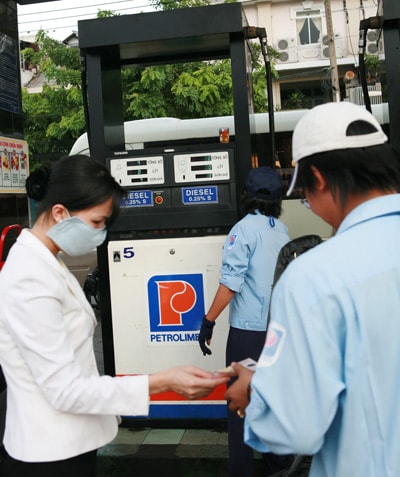Need to prosecute gasoline fraud case soon
Evidence and physical evidence are complete, but the case of siphoning gasoline and mixing it into dirty gasoline and oil is still ongoing.was handled too slowly causing public outrage.
Most opinions from functional ministries, lawyers and experts believe that it is necessary to promptly prosecute the case of embezzlement and mixing of gasoline and oil, to properly punish the fraudsters.
|
Need severe punishment
Mr. Tran Minh Dung, Chief Inspector of the Ministry of Science and Technology, said that fraudulent acts should not be tolerated, and that the investigation agency needs to work to quickly find clues and appropriately punish the fraudsters. Specifically, on the business side, in addition to handling employees, it is necessary to review the process of transporting and managing gasoline and oil as well as plugging "loopholes" in sealing and lead sealing. Fraudsters must be prosecuted to set an example and not let it happen again. Talking to Thanh Nien, Deputy Minister of Science and Technology Tran Viet Thanh said that "it is necessary to apply the highest penalties within the current legal framework for fraudulent acts in the quality and quantity of gasoline and oil to effectively deter them."
| It is necessary to apply the highest penalties within the current legal framework for fraudulent acts in the quality and quantity of gasoline. | |
| Mr. Tran Viet Thanh, Deputy Minister of Science and Technology |
According to Mr. Vuong Thai Dung, Deputy General Director of Petrolimex, this enterprise has suspended 5 employees who siphoned off gasoline and has transferred the case to the investigation agency for handling. After the conclusion, the level of violation will be handled according to the law. Petrolimex's highest form of handling is to fire the violating employees.
Responding to the question of whether Petrolimex has reviewed the delivery process between tanker drivers and gas station employees at the violating locations and whether there is collusion, Mr. Dung said that Petrolimex has assigned the companies to review it. Each trip has a bill of lading, if the driver delivers less gas to the store manager, the driver must take responsibility, if there is less, the store manager must compensate.
The hook is useless, because the quantity is still on the bill of lading.
Responsibility of the Ministry of Industry and Trade
Lawyer Pham Thanh Binh, Hong Ha Law Firm, analyzed that Clause 1, Article 29 of Decree No. 84 of the Government clearly stipulates the responsibility of the Ministry of Industry and Trade for the management, inspection and supervision of petroleum business activities of agents. Therefore, the Ministry of Industry and Trade cannot stand "outside" but needs to take positive action, together with Petrolimex to review business processes, detect loopholes that can be easily exploited and seriously review related individuals to have effective measures to prevent the phenomenon of "gutting" and "mixing" gasoline that is becoming more and more popular today. Lawyer Binh also shares the view that it is necessary to promptly investigate and strictly handle related organizations and individuals.
According to Mr. Binh, individuals directly involved in siphoning gasoline, depending on the severity of the violation, may be subject to administrative sanctions or criminal prosecution. As for Petrolimex, as the importer and manager of many affiliated gasoline distribution agents, when the incident occurs, the primary responsibility belongs to Petrolimex. Decree No. 84/2009/ND-CP dated October 15, 2009 on gasoline trading clearly stipulates the responsibility of gasoline general agents to inspect and supervise the activities of agents in their distribution system; jointly responsible for violations by agents in gasoline trading activities according to the provisions of law (Article 17). At the same time, Petrolimex is also obliged to manage the quality and quantity of gasoline "during the process of importing, producing, blending, storing, transporting and selling to consumers; responsible for the quality of gasoline in the distribution system under its management". In case of failure to ensure the quality of gasoline sold on the market according to regulations, gasoline trading enterprises may be subject to an administrative fine of 10 million to 30 million VND according to Article 16 of Decree No. 104/2011/ND-CP dated November 16, 2011, regulating administrative penalties for violations in gasoline trading.
If there are signs of a crime, prosecution is possible. |
According to Thanh Nien







